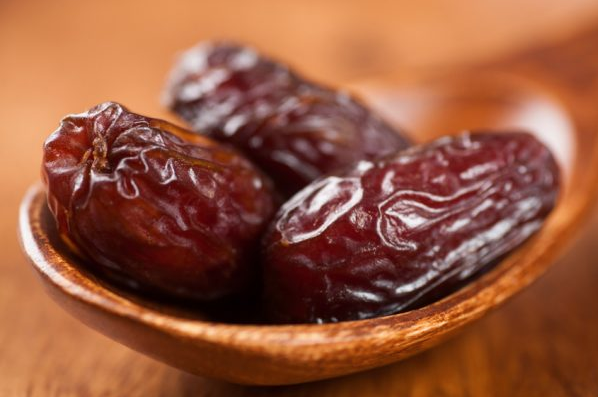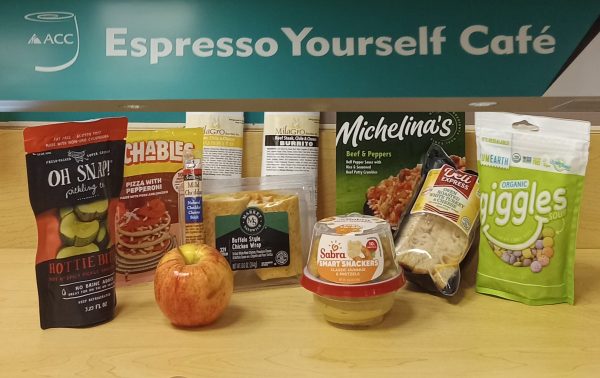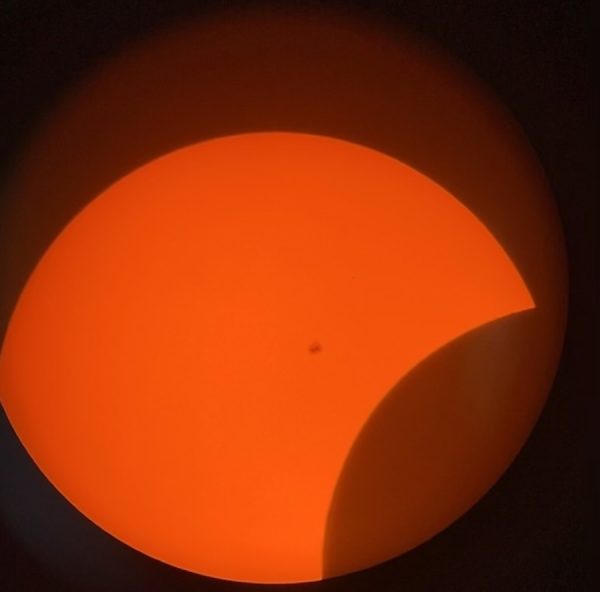Dates: Nature’s Power Snack

Medjool dates. Image via WikiMedia
For some people, the small, oblong-shaped drupe, with the wrinkly brown skin, may not be the most attractive looking snack. Reminiscent of an oversized raisin that’s been out in the sun for too long, dates are regarded as an organic snack simply brimming with natural energy, minerals, vitamins, and health-benefiting phytonutrients that young people, especially students need.
Unquestionably, the life of a student is stressful. We rush off in the mornings, either for school or work, usually without putting much between our teeth except for that indispensable cup of coffee. By midday, our grumbling bellies demand something, anything, and that’s when the all-too-familiar craving for junk food kicks in. A dash for the cafeteria is made, and the oh-so attractively-packaged bag of chips or snickers bar automatically becomes the short-term appeasement. We’ve all done it; it feels efficient.
But with time, this habit can become a problem. According to a study, featured in the British Journal of Health Psychology, the food we eat has a direct impact on our cognitive performance. Fruits and vegetables contain vital nutrients that stimulate the production of dopamine, affecting our day-to-day experience. The study suggests that the more fruits and vegetables we consume, the happier and more creative we tend to be. It, therefore, stands to reason, the healthier we eat, the better we perform.
Since the time of the Garden of Eden, the date fruit has been regarded as a heavenly crop. The delicious ‘fruit of paradise’ is one of a few whole foods whose nutrients are almost completely digestible by the human body. One handful of dates, about three to four pieces, is equivalent to a single serving that provides 266 calories, 72 grams of carbohydrates, and 6.4 grams of dietary fiber. The date fruit is rich in natural sugars, including glucose, fructose, and sucrose, making it an ideal energy-boosting snack between meals.
Dates are particularly beneficial for preventing bad cholesterol (LDL) and triglycerides from being absorbed into the body, an important attribute given that so much of the junk food we consume contain these unhealthy elements. Also, to help control heart-rate, and balance the amount of oxygen red-blood cells carry through the body, a good daily dose of iron—found plentiful in one serving of dates—is imperative.
Vitamin A, another vital component of dates is especially good for the eyes, and has the added bonus of helping to maintain clear, radiant skin. It is safe to say that all students, at one point or another, have battled bouts of unwelcome acne. Knowing that there’s a tasty remedy out there is a comforting asset.

To regulate its metabolism and maintain a strong bone structure, the body calls upon vitamin K, one of a list of vitamins it isn’t able to synthesize on its own. That’s why if you eat just three dates a day you won’t need to take all those vitamin supplements because dates also contain Copper, Zinc, Potassium, Magnesium, Manganese, and Vitamin B6. In addition, a whole host of other essential micro-nutrients such as pantothenic acid, and riboflavin are all packed inside this wondrous fruit, providing additional preventive healing functions.
Dates are not only a healthy, natural choice but they contain zero grams of fat and can keep for weeks without refrigeration.
So, the next time you catch yourself reaching for an energy bar skip it, and have a handful of nature’s power fruit instead. They are guaranteed to keep your energy levels up and will help you stay active throughout the day.











